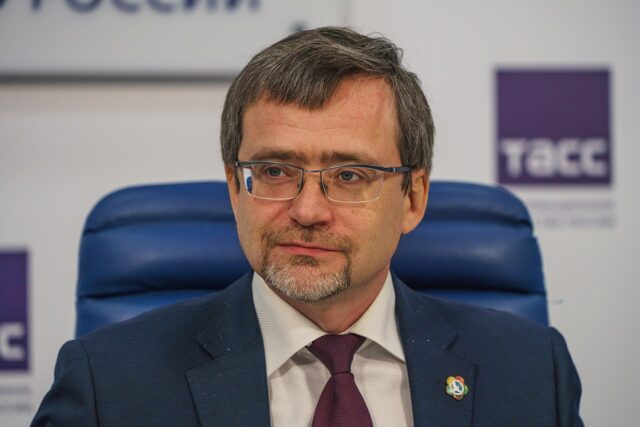Continuation
 Бизнес код
Бизнес код
The previous article «Russia-Turkey: rapprochement through barriers» talked about the complex development of bilateral relations at the beginning of the XXI century. In December 2017, the two countries inked a $2.5 billion deal for Turkey to buy the S-400 air defense system from Russia, marking another high point in the postcoup rapprochement and Turkey’s pivot toward Russia. Turkey finally received its S-400 air defense system after nearly two years of repeated threats from the US and NATO. This was a symbolic victory for both Turkey and Russia — Turkey could show the world its geopolitical significance as a regional power and its ability to operate independently of the West and Russia was able to completely win over NATO’s second-biggest power for the first time.
The model developed in Syria which featured geopolitical rivalry, military conflicts, and subsequent tactical cooperation was later applied to two additional conflict zones, first in Northern Africa and then in the Caucasus. As in Syria, Russia and Turkey emerged as key players in Libya (Second Libyan Civil War, June 2020), essentially occupying the power vacuum. The UN initiative was a farce as the EU and NATO were deeply divided in Libya. While France and Greece backed the Libyan National Army (LNA), Italy and Malta supported Turkey and the Government of National Accord (GNA). The Russian Federation and the Turkish Republic were supporting different sides, but they were able to work together on a tactical level nonetheless. The result was a more favorable environment in which they could exert their military and political control over Libya while decreasing Western dominance.
The Karabakh War (November 2020) in the Caucasus was somewhat different compared to Libya. As Russia deployed the 2000 Russian peacekeepers at the end of the war, it kept Turkey out of the political process that followed. Turkey still increased its influence in Azerbaijan as it played a key part in the latter’s success in the war. Both Russia and Turkey managed to come to an agreement regarding the joint Centre for monitoring the ceasefire. This indicates that both Moscow and Ankara are eager to cooperate with one another to keep the peace and that they have an interest in protecting their respective gains while preventing another outbreak of conflict in the near future. Following the war, Russia also expressed its support for the normalization of relations between Armenia and Turkey, which is essential for maintaining regional stability (A New Dialogue).
A new polarization in international relations, particularly in Europe, was caused by the Russian a special military operation on Ukraine in February 2022. The West had hit Russia with severe politically, financial, economically sanctions and provided Ukraine with substantial military aid.
As tensions between the Western bloc and Russia approach a level not seen since the early 1990s, they threaten to destabilize the United Nations-centered system of multilateral global governance. As a result, maintaining neutrality while also engaging in trade and dialogue with Russia has become exceedingly difficult. Although Turkey provided substantial military support to Ukraine in the war (reportedly the Bayraktar drones were quite effective) and Erdogan expressed his support for the country, Turkey refused to abide by the financial and economic restrictions imposed on Russia by the Western countries.
It is important to note, Turkey has also taken on a mediating role diplomatically between Russia and Ukraine. Ankara sought a middle ground politically, between Russia on one side and Ukraine and the West on the other. Along with the United Nations, Turkey was instrumental in mediating an agreement between Ukraine and Russia that allows grain exports from Ukraine via Black Sea ports.
On the contrary, Turkish – Russian trade has reached an all-time high of $54.3 billion. In 2015, 99 limited companies were founded in Turkey by Russian owners. By 2022, that number had risen to 1223, placing Russians first among citizens of countries with businesses in Turkey. Furthermore, in 2022, Russians have bought three times as many properties in Turkey as they did in 2021, making them the foreign citizens with the highest property ownership in Turkey. In the following years, Turkey will most likely become the top destination for Russians as always. All of these developments indicate a deeper rapprochement between two countries and peoples (not just top-down but also bottom-up).
To be continued …


